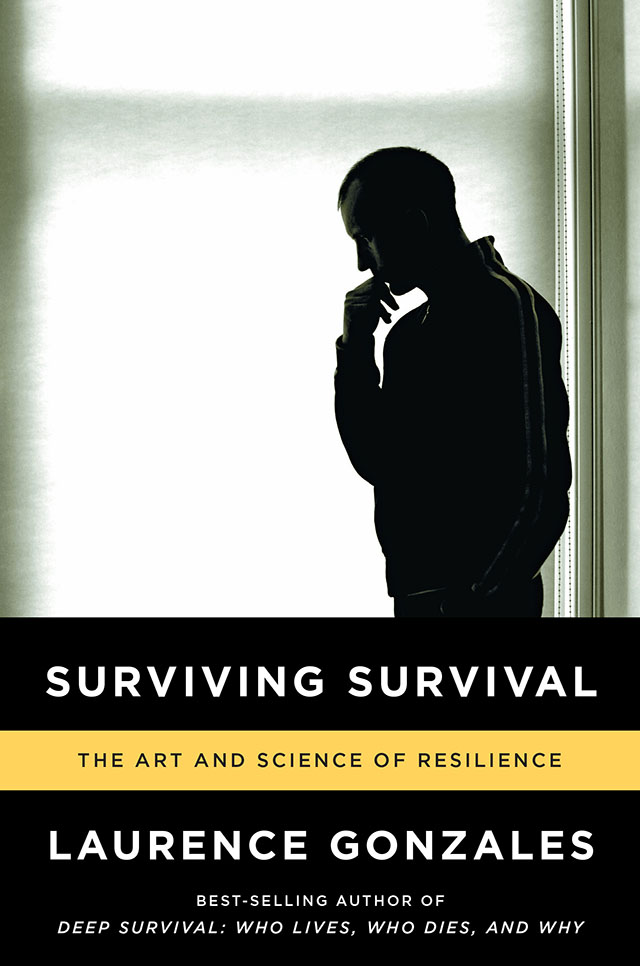
Also by Laurence Gonzales
The Still Point
The Heros Apprentice
One Zero Charlie
Deep Survival
Everyday Survival
Lucy
SURVIVING
SURVIVAL
T HE A RT
AND S CIENCE
OF R ESILIENCE
Laurence Gonzales

W. W. NORTON & COMPANY
NEW YORK LONDON
For my wife, Debbie
CONTENTS
Thine hands have made me and fashioned me together round about; yet thou dost destroy me.
Job, 10:8
The dramas done. Why then here does any one step forth?
Because one did survive the wreck.
Moby-Dick
PROLOGUE

NO WAY HOME
WAS a sailor in her twenties when her ship went down in a hurricane. The captains girlfriend, Meg Mooney, tried to make her way across the listing deck so that she could swim away. A towering wave swept Megs sweatpants off and she fell naked into the rigging, which cut through her thigh down to the bone. Debbie had already leapt into the water, which now filled with Megs blood. As Debbie watched, Meg screamed and another wave collapsed upon her, again sending her into the wires. Debbie swam back to the boat to help Meg into the water.
The first mate, Mark Adams, panicked. He inflated the life raft before tethering it to the ship. It blossomed into a perfect kite, and the gale-force winds whipped it away, carrying Mark with it until he was able to let go. Another crew member, Brad Cavanagh, managed to get an 11-foot Zodiac into the water. The five crew members swam for that boat. All the supplies for survival had been lost with the raft. They had nothing to sustain them. They were as good as dead.
Deep inside the brain, the hypothalamus monitors your bloodstream, its pressure and volume as well as how much salt is in it. When you become dehydrated and the hypothalamus sends its command to drink, it is nearly irresistible. Debbie described it this way: Thirst begins as an urge, a need, a want, but after a while, it becomes an all-consuming passion, then an incandescent pain that begins in the nose and mouth and eyes and spreads to consume the whole body. Debbie and Brad were able to resist this torture. Mark and the captain, John Lippoth, were not; they drank seawater on the third day. Within 24 hours they both went mad. They began hallucinating and became convinced that they were a short distance from shore. John began talking to Meg in a calm and seemingly rational way, saying, Im just going to get the car. Were just off Falmouth. He went over the side. Debbie screamed at him to stop, but he calmly said, Ill be back in a few. Brad joined Debbie in trying to talk John out of going, but he replied, I cant take this anymore. Im going to get the car. And he pushed off into the sea.
The sun was setting. Thin decks of cloud lay upon the horizon like crimson smoke. In a few moments, they heard Johns shrieking as he was eaten alive by the sharks that had been circling the Zodiac. Meg lay in the bottom of the boat, covered in saltwater and seaweed, naked from the waist down. Debbie could see how severe her injuries were, her leg and torso deeply lacerated by the ships rigging. Later that night, when Mark climbed on top of her in his delirium, all Meg could do was whimper. Then Mark flew into a rage, screaming, Im tired of playing games. Im going back to the 7-Eleven to get some cigarettes. He, too, slipped over the side. Everything was quiet for a time. Then the Zodiac was hammered from underneath and flung into the air. A second concussion spun the boat around, lifting the bow and slamming it back onto the surface of the water. Debbie and Brad lay in the bottom of the boat, holding each other in terror, as they realized that sharks were in a feeding frenzy over Mark, just below the hull.
Full night descended, and above the moonless ocean the Milky Way emerged like a faint galactic mist in the sky. All was quiet once more. New stars drifted along their upward trajectory. Debbie and Brad fell asleep together. She woke to the sound of Meg speaking incoherently as if in tongues and waving her hands in the air. Meg seemed at peace, her voice without inflection. Soon the muttering ceased and Meg closed her eyes and stopped breathing. Brad and Debbie committed her body to the sea. They then made a pact to look out for each other, to take turns sleeping, not to drink seawater. To survive.
The next day, their fifth without water, they were picked up by a Russian freighter 290 miles off Cape Hatteras. When I told that story in my book Deep Survival , thats where it ended: with the rescue. But the rescue marked the beginning of an entirely new story for Debbie, because a relentless system for making memories had been hard at work throughout her ordeal. She endured excruciating pain over the course of the five days she spent adrift at sea. In addition to the pain of thirst, the terror, the physical brutality of the sea, she witnessed the horrifying deaths of three friends. Much of what the brain does is unconscious. It works behind the scenes to forge memories of what is dangerous and what is beneficial so that in the future we can respond correctly and automatically. During her crisis, Debbies brain was working overtime to map out those memories in preparation for the next assault. In the brain, the cardinal rule is: future equals past; what has happened before will happen again. In response to trauma, the brain encodes protective memories that force you to behave in the future the way you behaved in the past. Any sight, sound, or smell, any fragment of the scene in which you were threatened, can set off that automatic behavior. The trouble was that in all likelihood, Debbie would never again face a similar hazard. It is rare to be shipwrecked. The chances of its happening twice to the same person are vanishingly small (though, as well see, that can happen sometimes). In other words, Debbies natural and normally useful systems for forming important memories were working on a job that had no practical value. Indeed, those systems were working to make her miserable.
AFTER THEIR rescue, when they were out of the hospital, Debbie and Brad, the sole survivors, went to lunch with their families. It was a celebration. They had survived. They were going home. But after the meal, Debbie and Brad walked away from the group and down to the harbor to look out and say good-bye. Somehow, Debbie later said, we couldnt fit in with those people, we couldnt yet return to the world. That clearly echoed what Viktor Frankl wrote about being liberated from a Nazi death camp at the end of World War II: We did not yet belong to this world. That is one of the most common sentiments people express after an experience of extreme survival. Frankl said that when he and his fellow inmates were freed from the horror of the Nazi death camp, they experienced no joy. Their first steps into the world were timid and tentative, and they were not yet able to trust their own freedom. Although they passed through fields of flowers, they were unable to form an emotional reaction to them. The men came together that evening to examine their feelings about liberation and discovered that they had literally forgotten how to feel anything at all. The experience in the camp had inscribed a set of memories that obscured the old. The memories of survival had to be slowly overwritten by a newer layer of experience. Only then could freedom be trusted.
drifted in a life raft for 37 days, trying to keep his young family alive after their sailboat, the Lucette , sank. The parents and four children were picked up at last by a fishing boat. Safe on deck, Robertson said he felt like a merman suddenly abstracted from an environment which has become his own and returned to a forgotten way of life among strangers. Those feelings of alienation and displacement represent one of the most common responses to trauma. Just ask Jessica Goodell, a Marine who served in Iraq. Her job with Mortuary Affairs was to reassemble human bodies that had been blown apart by roadside bombs so that they could be sent home. After eight months of that horror, she tried to go home but realized that she, too, felt that there was no place for her in the world. After being trapped underground for 69 days in 2010, a Chilean miner expressed this same sentiment. Part of me stayed down there, he said.
Next page

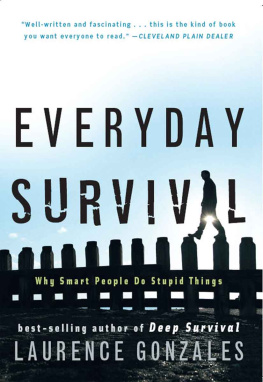
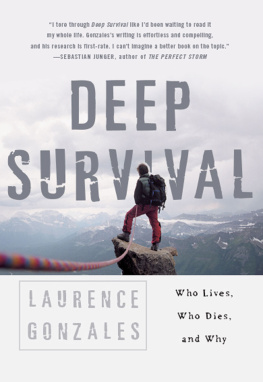


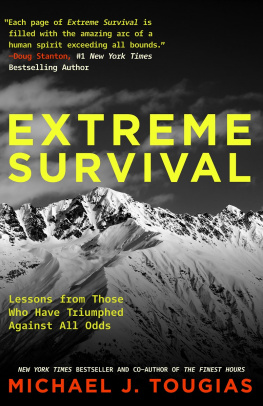
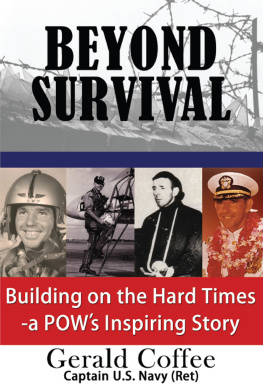


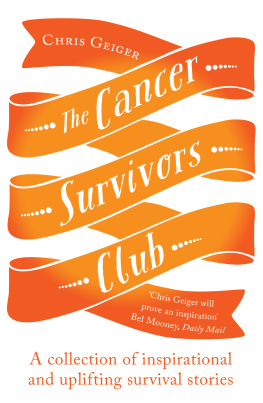

![Frances M. Ashcroft - Life at the Extremes: [The Science of Survival]](/uploads/posts/book/49583/thumbs/frances-m-ashcroft-life-at-the-extremes-the.jpg)


